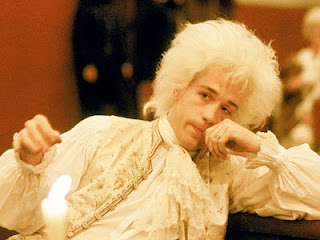 In the late winter of 2012, a year before I started writing my little Lenten book Change Our Hearts: Daily Meditations for Lent
In the late winter of 2012, a year before I started writing my little Lenten book Change Our Hearts: Daily Meditations for LentSo by the end of May I was able to finish a draft of the song. I was working on another commission at the time, a song for my friend Bill Fraher at Old St. Patrick's church in Chicago, the song which became "Acts of God," about which I've written before. When I sent them my first "draft," and sang the song myself, just accompanying myself on guitar, and sent it via email, they seemed delighted with the tune, but had reservations with the text. I, of course, being more than a little too self- assured about my text-writing ability, was horrified that I had missed the mark for people with whom I felt a kinship in our approach to faith. But they were unsettled by some of my language, which they felt was divisive and harsh. The original version of the lyric was this:
1. The spirit of God is upon me like flame.
I rose from the water, and love spoke my name.
And now every child in the household of God
Is sister and brother to me.
Refrain:
Come, friends, be beacons of light,
Speak truth to the nations deceived by the night
Til all have enough, and there's none left to fight.
Turn around, and believe in the gospel.
2. For hearts that are broken, a message of cheer,
For prisoners of debt there is amnesty here,
And freedom for captives, good news to the poor.
The day cannot wait any more. (refrain)
3. The lame lead the journey, the sightless shall see,I have all the email correspondence between us as an archive, which I'm glad I saved, as it helps me grow a little bit as a writer and a believer. There's a Girardian insight at play here: rivalry is the instinct that sets up the scapegoat mechanism. When we blame someone or someones for whatever we consider to be the "wrong," there's a counter-reaction in the other the closes the possibility of reconciliation and change. While I know this intellectually, it's more difficult to act on it, especially since we who care about change and justice tend to take the prophetic tradition seriously, and that tradition is, biblically speaking, divisive! The Jesus tradition is mixed on it, possibly because of redaction of his actual sayings (ipsissima verba, as scholars call them) by scribes who lived decades after his death and who had axes to grind with some Jews, or Pharisees, or who wanted to prove to Rome that Christians weren't their enemies.
The choir of the voiceless sing God's jubilee,
The vile ancient spell of the mighty and strong
God breaks with a word to a maid. (refrain refrain)
So the board at JustFaith said they were uncomfortable with my using words like "deceived, vile, fight, and the notion of pitting one group over or against another. We are looking for a song where those singing it see themselves as good news people, they are bringing about hope and light and positive transformation of injustice..." I confess that I was flummoxed at the time, but with a little prayer-space and a recollection of a long-ago conversation with Fr. Richard Fragomeni on this very subject (Richard had introduced me to Rene Girard, and was quick to identify behaviors like bishop-bashing, priest-bashing, and other "bashings" as diabolical in the root sense of "dividing," and thus not helpful in an overall strategy of agape. It seems obvious, I know, but just try not doing it!)
After licking my wounds a bit, I changed the text thus. You'll notice that the first and second verses are nearly unchanged, but the refrain and final stanza are transformed:
1. The spirit of God is upon me like flame.
I rose from the water, and love spoke my name.
And now every child in the household of God
Is sister and brother to me.
Refrain: Come, friends, be beacons of light,
Do not be afraid of the powers of the night.
And let Jesus' words in our living resound:
"Turn around and believe in the gospel."
2. For hearts that are broken, a message of cheer,
For prisoners of debt there is amnesty here,
And freedom for captives, good news to the poor.
The day cannot wait any more. (refrain)
3. The lame lead the journey, the sightless shall see,
The choir of the voiceless sing God's jubilee,
The favor of God, like the sun and the rain,
Will bless every person the same.
It was almost there, but I missed the triple rhyme in the refrain. Further, JustFaith was hoping that the words "announce the good news" might appear in the refrain, since the program was called "Good News People" and it would "brand" the song with the program. Eventually, I let go of the "light/night" rhyme, and went with a different scenario, ending up with the text that we recorded:
Come, friends, with voice glad and clear
Announce the good news for all people to hear,
The good news of Christ: God's reign has come near:
Turn around and believe in the gospel.
At the beginning of this article, I mentioned my Change Our Hearts: Daily Meditations for Lent
Baptismal promises: (A) "Do you reject sin?" (B) "Do you believe in God?"
Period of Lent in the RCIA: (A) Purification - (B) Enlightenment
Preaching of Jesus: (A) "Repent" (i.e., metanoia, "turn around") and (B) "believe the good news"
The "turn around" aspect of metanoia is so strong, in fact, that in the baptismal rites of the early church, the elect, naked and surrounded by deacons and deaconesses, were told by the bishop to face the west (darkness) in the night vigil of their baptism and make the rejection of sin, and then literally "turn around" and face the east, and make the profession of faith in God, before being plunged into the baptismal waters by the bishop. The preaching of Jesus, I believe, was something like this (and I know you've heard me say this before): "So, you've got an emperor, who is the 'Prince of Peace' and god. All those taxes, the Roman legions, the blood, the crucifixions, the beatings—how is that working out for you? There's another emperor and another kingdom. It's already here. The "kingdom" of my Abba, which is not like the kingdoms of this world. All you need to do is start acting like who you are, children of God, brothers and sisters of one another. Treat each other with love. Act like a family. Just turn around, choose the "other" emperor, my Abba, who promises you peace through justice, not violence. Turn around, and believe this good news!"
So that's the origin, the story of this new song. I hope you like it, find it a useful addition to songs that proclaim the dominion of God. You'll note in the octavo that, in addition to the verses recorded, there are three more verses for Advent and the last Sundays of the church years. Let me know how it goes!
Go to GIA's website and audition (or order) "Turn Around."








